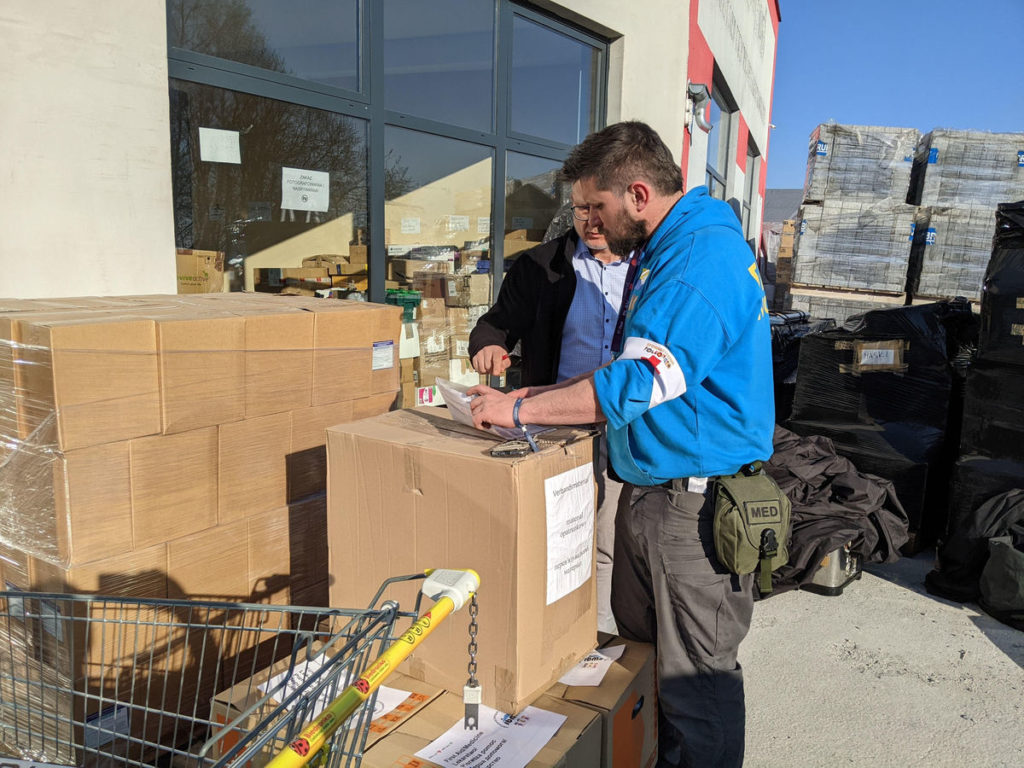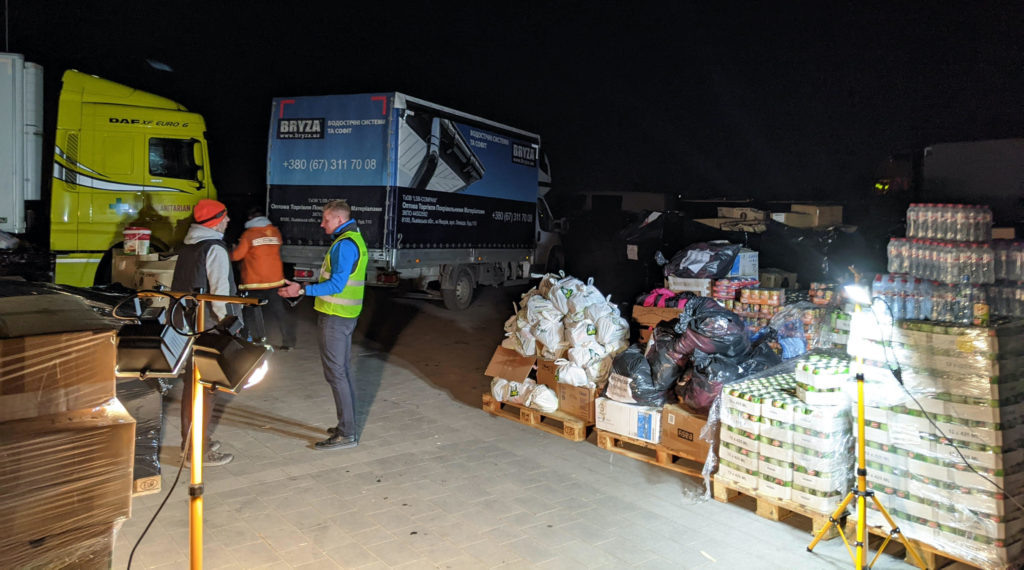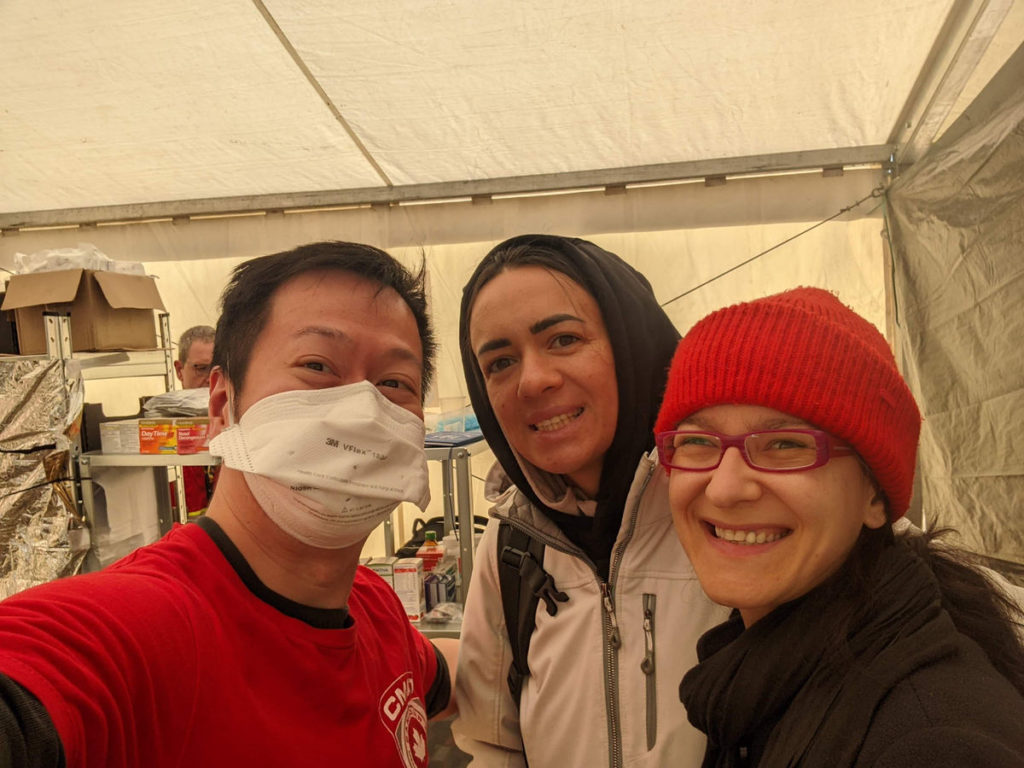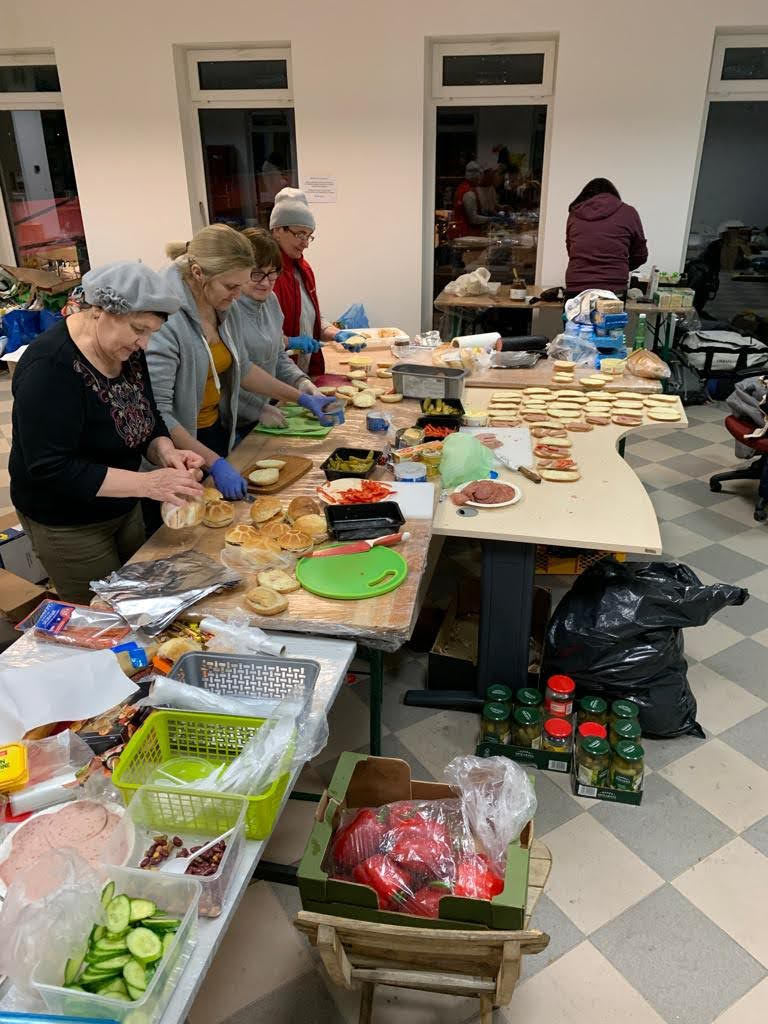Editors note: Anthony Fong is a physician volunteer with disaster-relief charity Canadian Medical Assistance Teams, which has partnered with the Folkowisko Association to provide medical aid to Ukrainian refugees along the Poland-Ukraine border.
After abruptly packing their bags to join long lineups in sub-zero temperatures, many of the 2.5 million Ukrainians who have made the trip to Poland need medical care once they reach the border. But at this crossing, the clinic is run by a Polish folk festival organization, not the Ukrainian government or the World Health Organization.
“The first week (of the war) was just awful. Temperatures were -15 C . . . 30,000 people were waiting in the queue for 30 hours, including people with disabilities and older people,” says Marcin Piotrowski, 39, director of the Folkowisko Association.
Founded 12 years ago in the village of Gorajec, Folkowisko’s reputation as an organizer of music festivals along the Polish-Ukrainian border led to unprecedented access to Ukraine in the first hours after the war Feb. 24.
“The borders were closed in the first hours, but they allowed us 48 hours . . . to bring food over to the other side,” says Piotrowski. Folkowisko immediately staked its ground, installing warming centres and delivering food to border checkpoints on the Ukrainian side.
 Director of the Folkowisko Association, Marcin Piotrowski, at work just outside the warehouse.
Director of the Folkowisko Association, Marcin Piotrowski, at work just outside the warehouse.
“We had only one tent, one small generator and a few extension (cords) on the second day of the war,” at the Ukrainian border checkpoint of Budomierz, Piotrowski says. By the fourth day, Folkowisko was providing medical services.
“We were there first – and for a long time, nobody else did it,” says Piotrowski.
Medical services on the Ukrainian side of the border are necessary as congestion causes long waits with deadly consequences. One night in early March, Piotrowski says six in the lineup died from exposure, including children: “Their mothers thought they were asleep, but they had hypothermia and they just died in their (mothers’) hands.”
Folkowisko maintains a diverse roster of volunteers from around the globe. Many European Union countries are represented as well as volunteers from Colombia, Brazil and the United Kingdom – and each volunteer has his or her own motivation.
“For me, it was very spontaneous,” says Izabela Rosiak, a 42-year-old IT consultant and entrepreneur from Berlin who is originally from Poland.
“I’d lost faith in humanity years ago. But those volunteers gave it back to me, stronger than ever.”
At the onset of the invasion, Rosiak went to Warsaw, originally intending to ask her parents to join her in moving farther from the unrest. Instead, she ended up hosting a Ukrainian family in an apartment she owns in Poland and was inspired by them to help out at the border. “It wasn’t thought through; it was more the voice of heart,” she says.
Rosiak joined Folkowisko’s roster of volunteers and acted as a jill of all trades: “At the beginning, I was working at the warehouse, sorting goods that were coming in. When there are sandwiches, coffee or tea to be made, you make them.”
The sandwich-making assembly line of volunteers at work at Folkowisko’s warehouse.
Then Folkowisko suffered a shortage of drivers to make runs across, which led Rosiak to take up the task regularly. She says her typical day now starts around 6 a.m., transporting medics from Poland to Ukraine and back. “Then I come back and drive to cities nearby on the Ukrainian side, where we deliver mostly food, and also hygiene stuff and medical supplies.”
Despite the long hours, spirits among volunteers remain high, says 31-year-old Kuba Wysocki, Folkowisko’s medical services co-ordinator. “People from around the world are helping with insane energy,” which he says motivates him in turn.
“I’d lost faith in humanity years ago. But those (volunteers) gave it back to me, stronger than ever,” says Wysocki, who is trained as a paramedic but works now as a programmer. He’s on a three-month unpaid leave from work to volunteer with Folkowisko.
 Volunteers at Folkowisko managing food donations late into the night.
Volunteers at Folkowisko managing food donations late into the night.
Folkowisko’s bustling warehouse in the town of Cieszanów, just 23 kilometres from the Polish-Ukrainian border, is a donated space on the outskirts of town that only closes for brief stretches. Piotrowski says in the early days of the invasion, they were operating 24 hours a day – now, the warehouse closes for a few hours every day, usually between 1 a.m. and 7 a.m.
A walkthrough inside reveals engaging smiles, animated, multilingual conversations and a dynamic kitchen with a sandwich-making assembly line that feeds volunteers nearly continuously throughout the day. There is an office area, a ground floor replete with boxes of donated supplies and an area with mattresses on the floor where volunteers can sleep.
When asked how the organizational “machine” works, Piotrowski replies: “No one understands this! It’s self-going.”
While Folkowisko’s warehouse is its human resources hub, it maintains its actual warehouse of surplus donations – food, clothing, diapers and medical supplies – in Cieszanów’s ice-skating rink through an agreement with the town’s mayor.
 From left to right: Anthony Fong; Katia Trusova, a Ukrainian interpreter from Texas; and Izabela Rosiak, IT consultant and entrepreneur from Berlin.
From left to right: Anthony Fong; Katia Trusova, a Ukrainian interpreter from Texas; and Izabela Rosiak, IT consultant and entrepreneur from Berlin.
Folkowisko’s volunteers are its strength, but Piotrowski says he is concerned that the working conditions may be unsustainable. “If we want to keep going, we have to start searching for funds.” Many volunteers have left their jobs; others have left their university studies. Piotrowski says that although the roster has a total of 2,000 volunteers, only about 50 currently are on active duty, with many Polish volunteers rotating in on weekends or when not at their regular jobs.
With Folkowisko’s pivot into the busy humanitarian sector this year, one might expect its music festival roots to be put on hold. However, that’s not the case. Its landmark festival, the Folkowisko Festival, is planned for July in Gorajec, just 30 kilometres from Poland’s border with Ukraine. Its larger rock festival, CieszFanów, which usually attracts 10,000 attendees to Cieszanów, is to take place in August.



The comments section is closed.
Thank you for sharing your experience as a physician placed along the border of Poland-Ukraine. News about people doing great work for people trying to find safety from a military invasion. This hardship, death, and unlivable condition will continue if the people in power allow the military invasion to drag on.